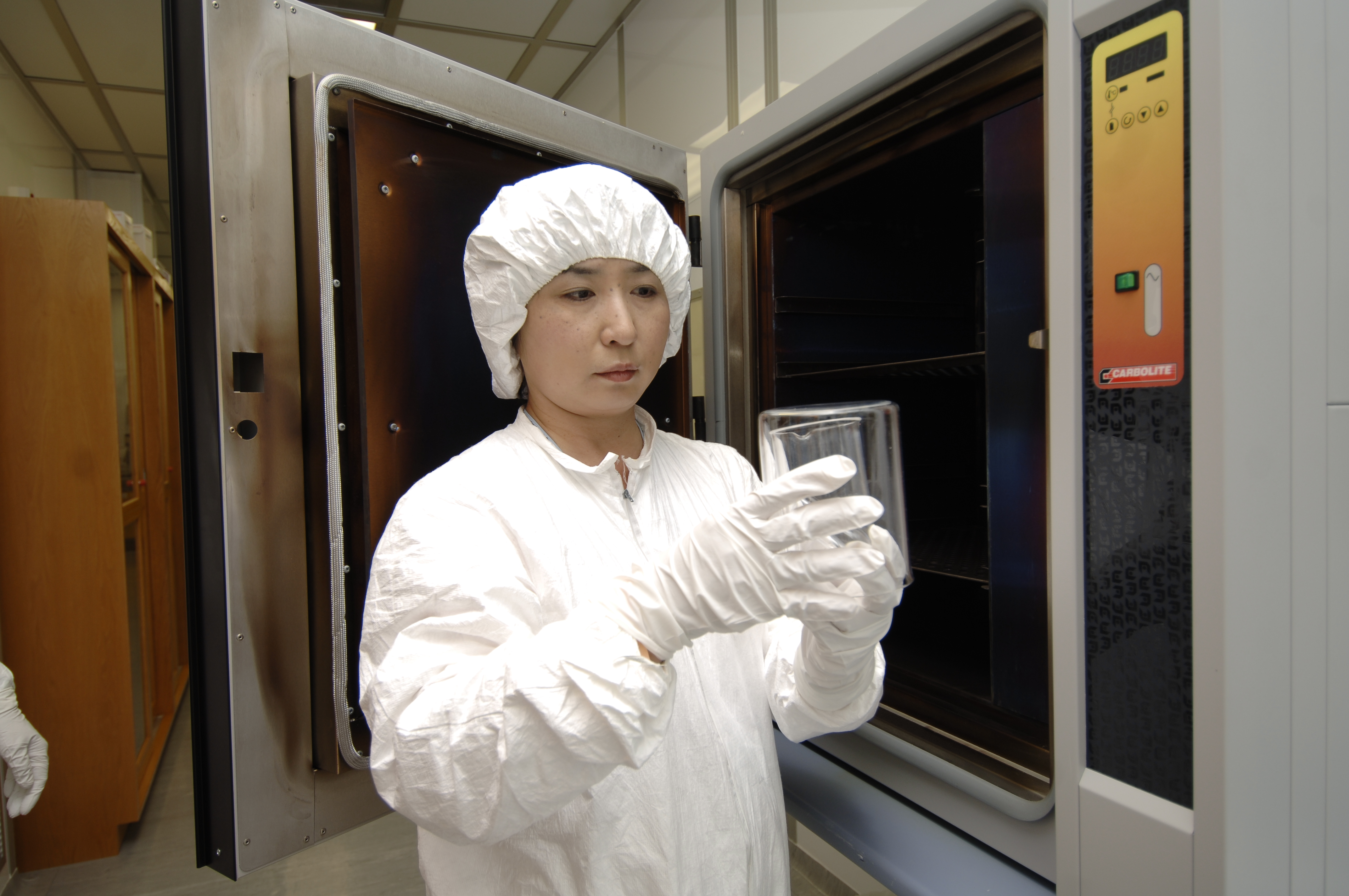Laboratory furnace
From LIMSWiki
A laboratory furnace is a specially designed piece of laboratory equipment that is designed to analyze, incinerate, and/or heat treat samples. In the late nineteenth century, the laboratory furnace was described as "a small and compact form of furnace for the laboratory of workshop, such as the Bunsen-burner furnace of the blast gas-furnace."[1] These furnaces were originally fueled by gas[2], though electric versions began appearing in the late nineteenth century.[3] Early uses were for managing metals and other geological extracts (e.g., studying the inflammability of coal dust).[2][4][5] In modern times, the laboratory furnace may be used for crystal growth[6], corrosion testing[7], and biomass fuel combustion testing.[8]
References
- ↑ "laboratory-furnace". The Century Dictionary: An Encyclopedic Lexicon of the English Language. IV. The Century Company. 1895. p. 3318. https://books.google.com/books?id=jgOYOB_nRAkC&pg=PA3318.
- ↑ 2.0 2.1 Fletcher, T. (1873). Practical Hints for the Laboratory and Operating Room. pp. 25–27. https://books.google.com/books?id=kgt-JFwVHsQC&pg=PA25.
- ↑ n.a. (1897). "25th Anniversary of the Stevens Institute of Technology - The Electrical Exhibits". The Electrical Engineer 23 (460): 226. https://books.google.com/books?id=W4dMAAAAYAAJ&pg=PA226.
- ↑ Gillett, H.W.; Mack, E.L. (1922). Electric Brass Furnace Practice. U.S. Department of the Interior. pp. 212–13. https://books.google.com/books?id=_8AzAQAAMAAJ&pg=PA212.
- ↑ Greenwald, H.P. (1932). Laboratory Testing of the Inflammability of Coal and other Dusts Conducted by the Bureau of Mines. U.S. Department of Commerce. pp. 42–45. https://books.google.com/books?id=nihC9VdKYcQC&pg=PA42.
- ↑ Cabric, B.; Janicijevic, A. (1 June 2004). "Obtaining crystals in a laboratory furnace" (in en). Journal of Crystal Growth 267 (1-2): 362–363. doi:10.1016/j.jcrysgro.2004.03.048. https://linkinghub.elsevier.com/retrieve/pii/S0022024804003574.
- ↑ Gaus-Liu, Xiaoyang (2008). High-temperature chlorine corrosion during co-utilisation of coal with biomass or waste =: Rauchgasseitige Hochtemperaturchlorkorrosion bei Mitverbrennung von Kohle und Biomasse/Abfall (1. Aufl ed.). Göttingen: Cuvillier. pp. 53–54. ISBN 978-3-86727-568-2. OCLC 244027996. https://www.worldcat.org/title/mediawiki/oclc/244027996.
- ↑ Olanders, Birgitta; Gunners, Nils-Erik (1 January 1994). "Some aspects of the formation of nitric oxide during the combustion of biomass fuels in a laboratory furnace" (in en). Biomass and Bioenergy 6 (6): 443–451. doi:10.1016/0961-9534(95)90406-L. https://linkinghub.elsevier.com/retrieve/pii/096195349590406L.










